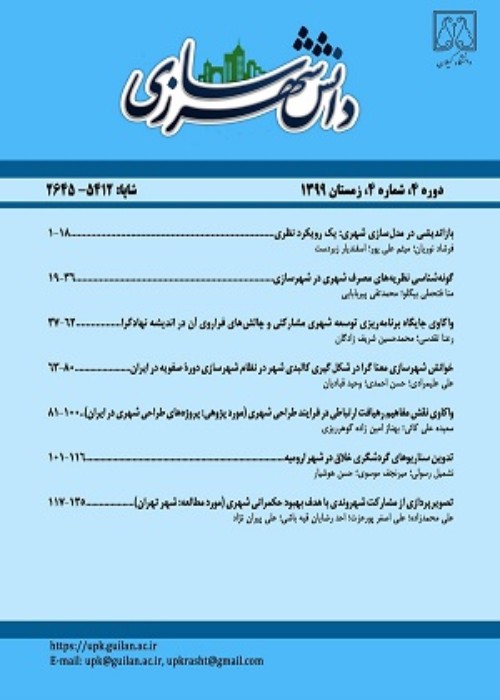Meta-analysis of the Main Challenges and Obstacles of Plans and Programs for the Conservation of Historical Fabrics in Iran; A Perspective for Future Studies and Actions
Plans and programs for the conservation of historical fabrics in Iran have always faced challenges in order to achieve their goals from the stage of preparation to implementation; challenges that often prevented the implementation of plans or failed to implement them. Identifying and understanding these barriers is a fundamental step in how to overcome them.
This research has been conducted to identifythe main challenges and barriers of plans and programs for protecting the historical tissues of Iran. accordingly seeks to find the priorities of future research by meta-analyzing the studies conducted in this field.
In the current study, the method of "meta-analysis based on contextual theory" has been used. Sampling and screening of articles have been done using several criteria during several stages. For this purpose, the Persian and English articles in the historical fabrics "written from 2014 to the present day" whose study scope is in "Iran", were searched in three databases: Google Scholar, SID, and Noormags. At the beginning of the process, articles were searched with the keywords "historical context" and "historical conservation". In the first step, the "title" and "abstract" of 156 articles based on criteria such as "publishing in scientific-research journals", "availability of the full text of the articles", "repetitiveness", "a direct reference to the barriers in the realization conservation plans and projects", "evaluation of restoration and conservation plans and projects based on case studies" and "referring to different approaches of conservation and development in historical contexts" were examined. 83 articles were selected. In the second step, after examining the "full text of the articles" and especially the "introduction" and "research results", the number of 39 articles were elected for review and coding. In the analysis of the samples, through open coding, 110 codes including direct and indirect references of the studies to the barriers and reasons for the failure of conservation programs have been extracted. In the next step, using axial coding, the codes were summarized and organized into 9 main categories. In the last step, using selective coding, the description of the categories and the link and relationship between the extracted concepts have been discussed.
Findings in the form of 9 categories: "Institutional and managerial challenge of heritage", "Content and semantic challenge of plans and programs", "Procedural and methodological challenge", "Cultural and social challenge", "Economic challenges", "the challenge of Legal, legitimate, rules and regulations of conservation and development”, "the challenge of power and policy", "the challenge of time" and the "knowledge and expertise challenge" were extracted and classified. It can be mentioned that categories and their relevant codes have a deep relationship and sometimes affect each other. Therefore not removing one obstacle or challenge will result in creating or amplifying other barriers.
Results showed that "institutional and management barriers and challenges of heritage" is one of the categories that has been emphasized with the highest level of abundance. In this category, the subcategories of "functional weakness and differences of management institutions"; in the category of "content and semantic challenge", the subcategories of "non-compliance of development plans with the needs, necessities, cultural structure and values of the context" and "the need for an integrated and comprehensive approach in regeneration, conservation and development" have been repeated more. Also, in the "procedural and methodological" category, the subcategory "Non-compliance of development and conservation plans"; in the field of "Cultural and social challenges", the subcategory "Lack of citizen participation", "Low level of public awareness towards heritage values", and "Lack of Educating and informing the society about historical values and how to deal with them"; and in the category of "economic challenges", the subcategory of "lack of supporting financial resources" and then "lack of incentive policies" were the most frequent. In relation to the "challenge of time", more emphasis has been placed on the "lack of attention to the historical development of the fabric"; and in relation to the "challenge of knowledge and expertise" to the "lack of local experts". However, from the author's point of view, there are also basic barriers and challenges that have either not been the focus of studies or have been mentioned in a few cases. In this regard "Challenge of theoretical foundations and indigenous literature in the field of urban restoration and conservation" "Semantic challenge of restoration and conservation words", "Gap between theory and practice" and "Innovation and technology" are the main gaps of previous studies which can be the priority of the future research
- حق عضویت دریافتی صرف حمایت از نشریات عضو و نگهداری، تکمیل و توسعه مگیران میشود.
- پرداخت حق اشتراک و دانلود مقالات اجازه بازنشر آن در سایر رسانههای چاپی و دیجیتال را به کاربر نمیدهد.



